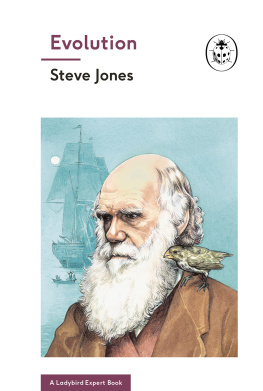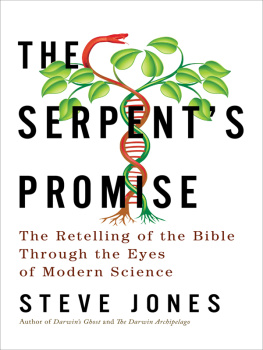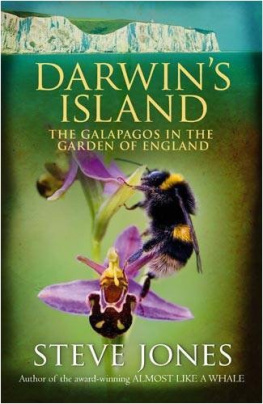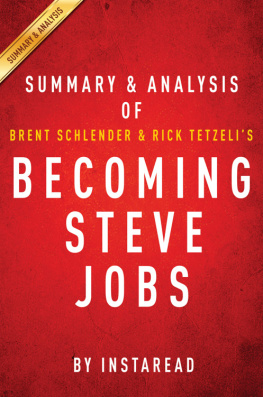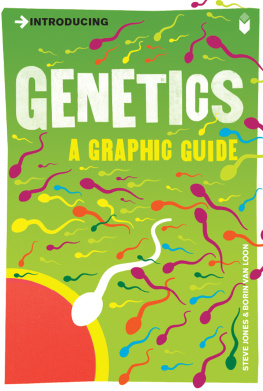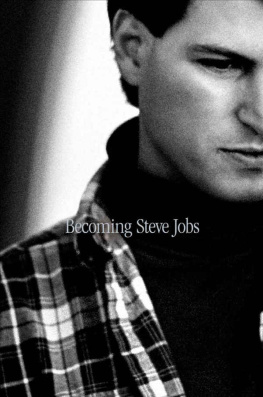Steve Jones - Evolution
Here you can read online Steve Jones - Evolution full text of the book (entire story) in english for free. Download pdf and epub, get meaning, cover and reviews about this ebook. year: 2016, publisher: Penguin Books Ltd, genre: Detective and thriller. Description of the work, (preface) as well as reviews are available. Best literature library LitArk.com created for fans of good reading and offers a wide selection of genres:
Romance novel
Science fiction
Adventure
Detective
Science
History
Home and family
Prose
Art
Politics
Computer
Non-fiction
Religion
Business
Children
Humor
Choose a favorite category and find really read worthwhile books. Enjoy immersion in the world of imagination, feel the emotions of the characters or learn something new for yourself, make an fascinating discovery.
- Book:Evolution
- Author:
- Publisher:Penguin Books Ltd
- Genre:
- Year:2016
- Rating:5 / 5
- Favourites:Add to favourites
- Your mark:
- 100
- 1
- 2
- 3
- 4
- 5
Evolution: summary, description and annotation
We offer to read an annotation, description, summary or preface (depends on what the author of the book "Evolution" wrote himself). If you haven't found the necessary information about the book — write in the comments, we will try to find it.
Evolution — read online for free the complete book (whole text) full work
Below is the text of the book, divided by pages. System saving the place of the last page read, allows you to conveniently read the book "Evolution" online for free, without having to search again every time where you left off. Put a bookmark, and you can go to the page where you finished reading at any time.
Font size:
Interval:
Bookmark:
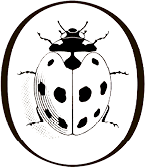
Series 117
This is a Ladybird Expert book, one of a series of titles for an adult readership. Written by some of the leading lights and outstanding communicators in their fields and published by one of the most trusted and well-loved names in books, the Ladybird Expert series provides clear, accessible and authoritative introductions, informed by expert opinion, to key subjects drawn from science, history and culture.
Owing to this struggle for life, any variation, however slight and from whatever cause proceeding, if it be in any degree profitable to an individual of any species, in its infinitely complex relations to other organic beings and to external nature, will tend to the preservation of that individual, and will generally be inherited by its offspring. The offspring, also, will thus have a better chance of surviving, for, of the many individuals of any species which are periodically born, but a small number can survive. I have called this principle, by which each slight variation, if useful, is preserved, by the term of Natural Selection.
Charles Darwin, The Origin of Species (1859)
The Publisher would like to thank the following for the illustrative references for this book: Cover and Bettmann/Getty Images.
Every effort has been made to ensure images are correctly attributed, however if any omission or error has been made please notify the Publisher for correction in future editions.
UK | USA | Canada | Ireland | Australia
India | New Zealand | South Africa
Michael Joseph is part of the Penguin Random House group of companies whose addresses can be found at global.penguinrandomhouse.com

First published 2017
Text copyright Steve Jones, 2017
All images copyright Ladybird Books Ltd, 2017
The moral right of the author has been asserted
ISBN: 978-1-405-92945-5
Rowan Clifford
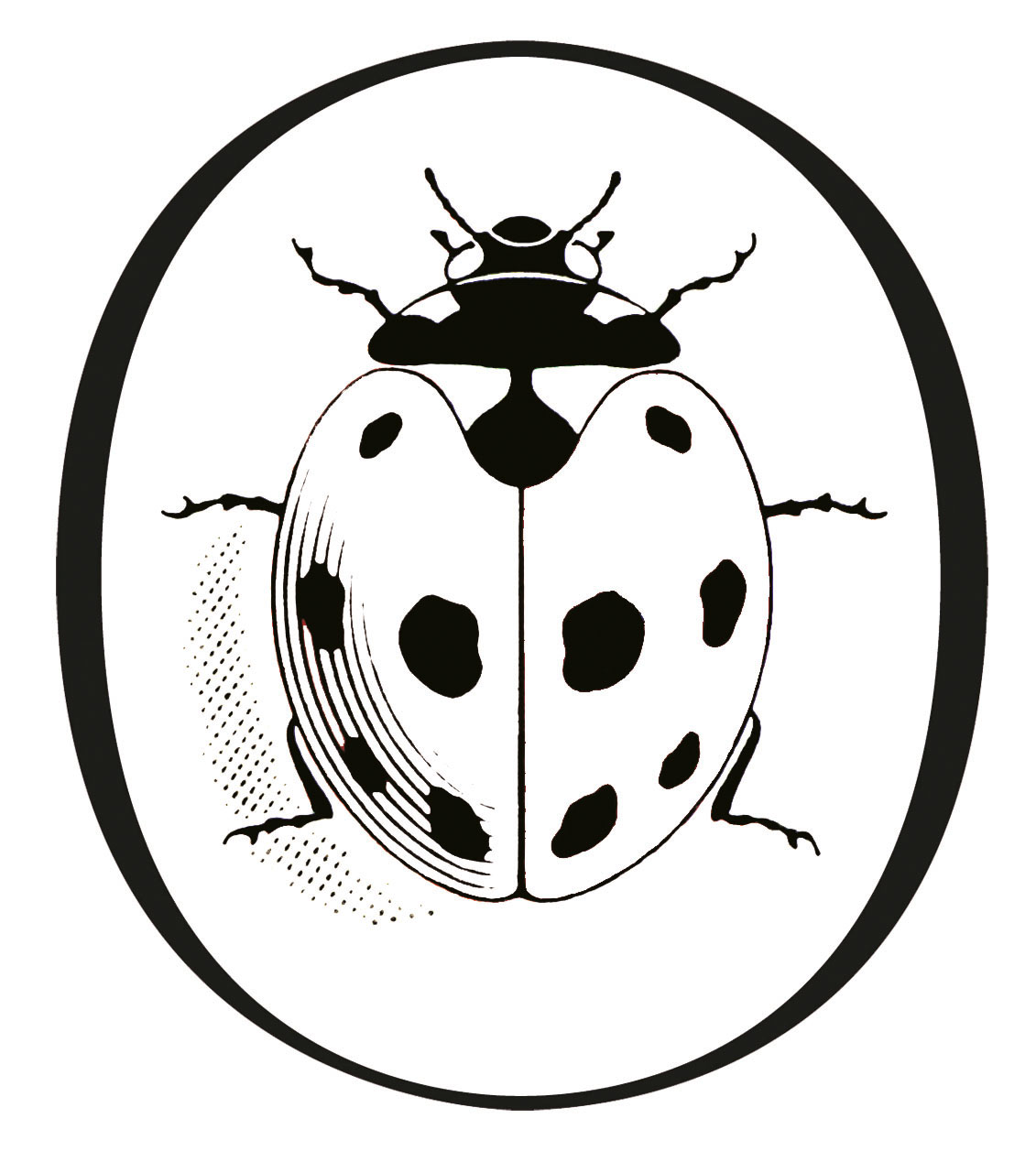
Nobody can speak a language without understanding how it fits together. Evolution is the grammar of biology. It unites the study of plants, animals and people into a single science. Without it, the subject would be a list of disconnected facts, as it was until 1859, when Charles Darwin published The Origin of Species.
His ideas led to a revolution in science and in humankinds view of itself. Although creationists still believed that life had sprung into being around 6,000 years ago, and although some biologists had speculated that living organisms could change, they had no real idea how or why, and few facts to back up their ideas. Darwins theory, by comparison, was almost brutal in its simplicity. It turns on descent with modification: the accumulation of errors over the generations. Diversity, its raw material, is refined in the furnace of natural selection: inherited differences in reproductive success in the face of a struggle for existence.
Darwin accumulated so much evidence that he might never have published had he not received a letter pre-empting his idea from the naturalist Alfred Russel Wallace. Darwin rushed out a Sketch of his theory. He calls The Origin one long argument and, like a legal case, it moves from the obvious to the almost unthinkable: from cattle breeding to the claim that light will be cast on man and his origins. That statement has proved triumphantly correct.
If The Origin is a Sketch at 170,000 words, the Ladybird Expert book Evolution is sketchier at a mere 6,000. Even so, I hope that it reveals the bare bones of modern evolution.
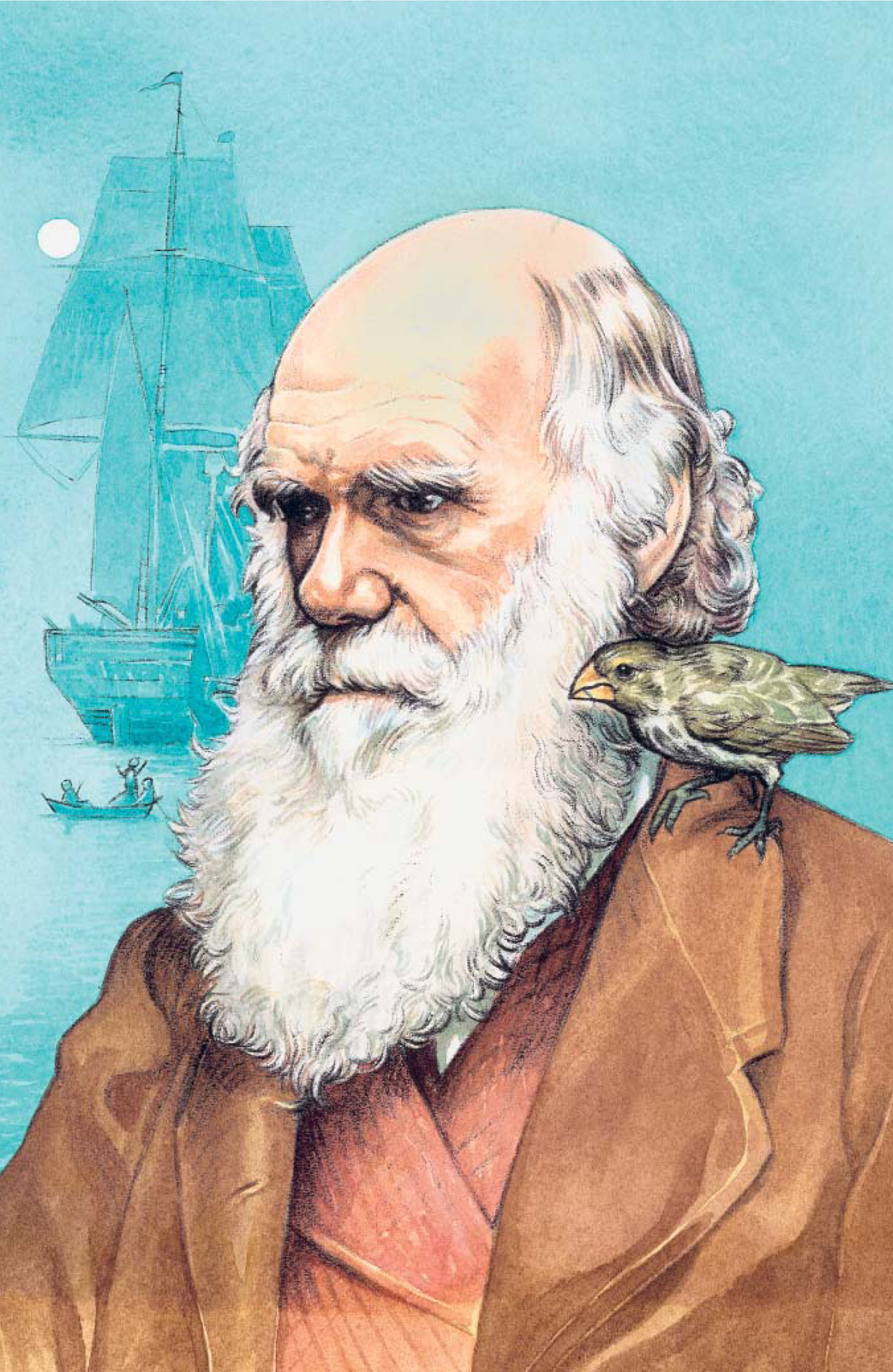
Hippopotami are rare on Everest today. However, they are there in spirit, for their fossils and those of their ancestors are scattered across the peaks. Some of their descendants still roam African swamps, but many more have changed their lifestyles, and sport in the deeps instead.
Genesis says that God created great whales, but Darwin dared to criticize that idea. Science has now demolished it, and the whales show how.
Evolution is a series of successful mistakes: a factory for almost impossible things. Millions deny the power of natural selection to generate eyes or whales, but they are wrong.
Fossil whales are in the Himalayas not because they moved there, but because the Earth did. Long ago those mountains were beneath the ocean, but as continents collided they were thrust into the skies. The fossils show a seamless transition, from hippo-like creatures 55 million years ago to others that, like polar bears, swam in the sea with four legs, to versions rather like seals, to animals that lost their forelegs until at last, around 25 million years ago, fins, blowholes and modern whales made their appearance. Divine assistance was not needed.
Those great creatures still share some characteristics with hippos they squeak to communicate, lack hair, and have testes inside the body. More important, the message written in whale DNA is more similar to that of modern hippos than to that of elephants or even seals.
Darwin on HMS Beagle saw plenty of whales, but he knew nothing of their past. Now we do, and in more detail than for any other mammal.
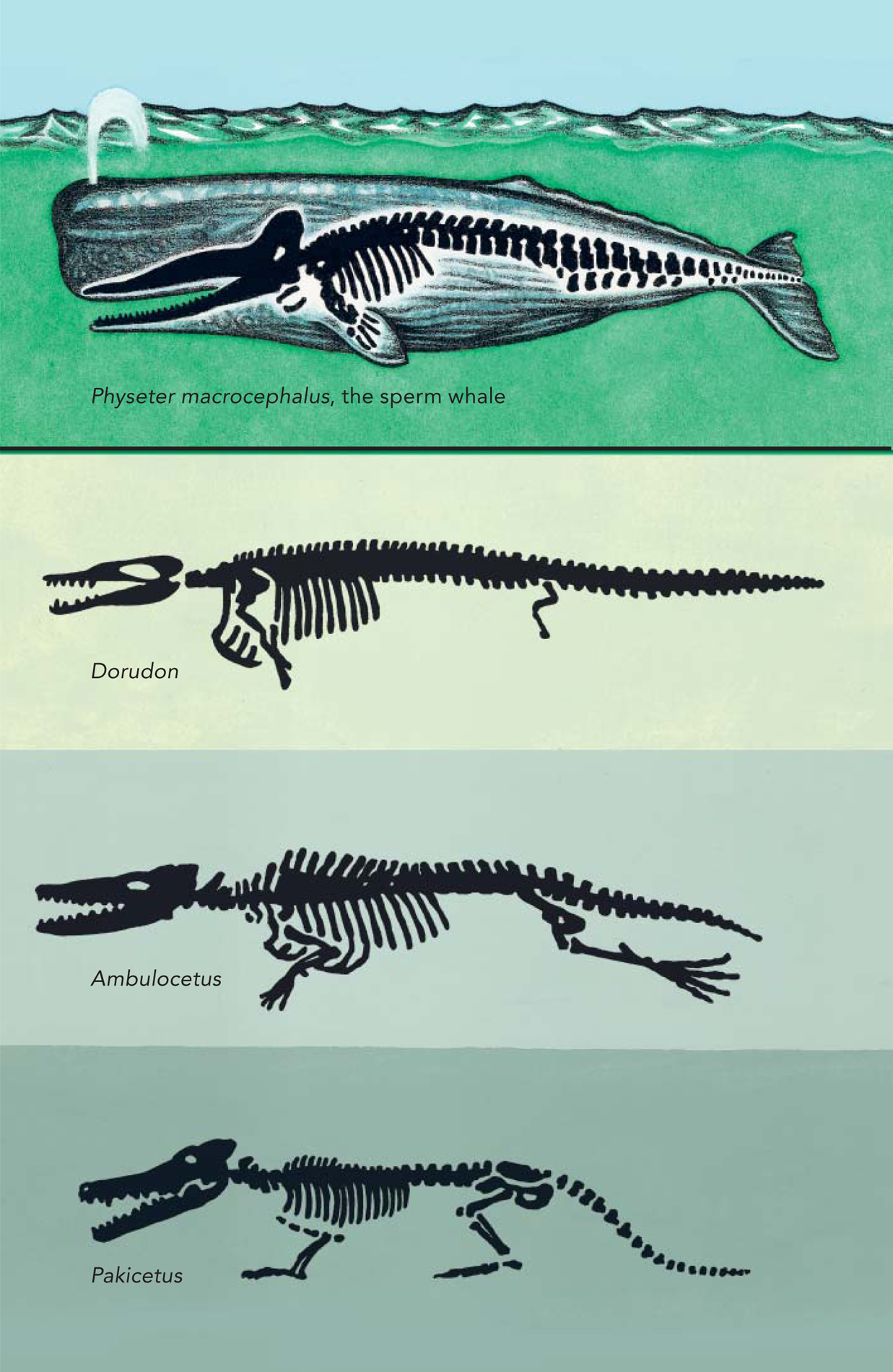
The Origin points out that language, like life, changes over the generations as mutations shifts in the way that people speak build up. I hear that every day among my students, most of whom now affect a half-cockney accent that must horrify their grandparents. Language also illustrates the power of selection as it winnows out failures and rewards messages that make sense.
A pig stands outside its sty. The challenge is to get the beast inside in the fewest possible steps, by changing each of the three letters in its name one at a time. Given the number of letters in the alphabet, to do the job by simple random error mutation would need an average of 17,576 tries (26 26 26) before the goal is reached. Impose a simple rule, that only combinations that represent English words are allowed to survive, and it can be done in six pig, wig, wag, way, say, sty.
To make by mutation alone a real pig from its ancestor even a wild boar, let alone the shared progenitor of pigs, hippos and whales would take more tries than there are stars in the universe. Natural selection got the boar on to the farm in a few thousand generations, and from the ancient mammal in a few million. From pigs to those who domesticated them, the history of life depends on making sense.
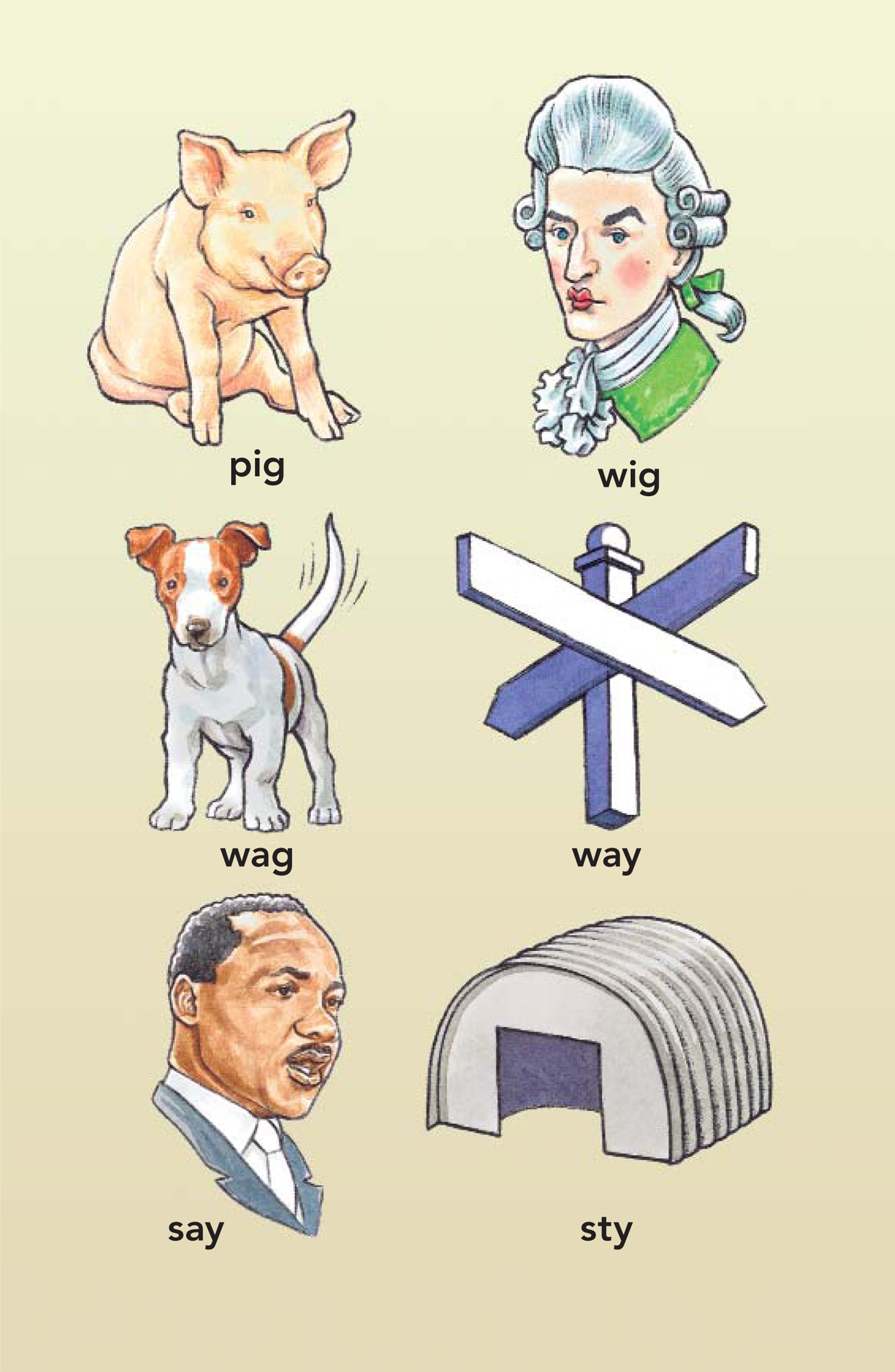
Domestic animals make a powerful case that flesh can change as farmers breed from animals that make more milk, more wool or more eggs; but the plant world gives even better evidence of the power of selection.
Font size:
Interval:
Bookmark:
Similar books «Evolution»
Look at similar books to Evolution. We have selected literature similar in name and meaning in the hope of providing readers with more options to find new, interesting, not yet read works.
Discussion, reviews of the book Evolution and just readers' own opinions. Leave your comments, write what you think about the work, its meaning or the main characters. Specify what exactly you liked and what you didn't like, and why you think so.

